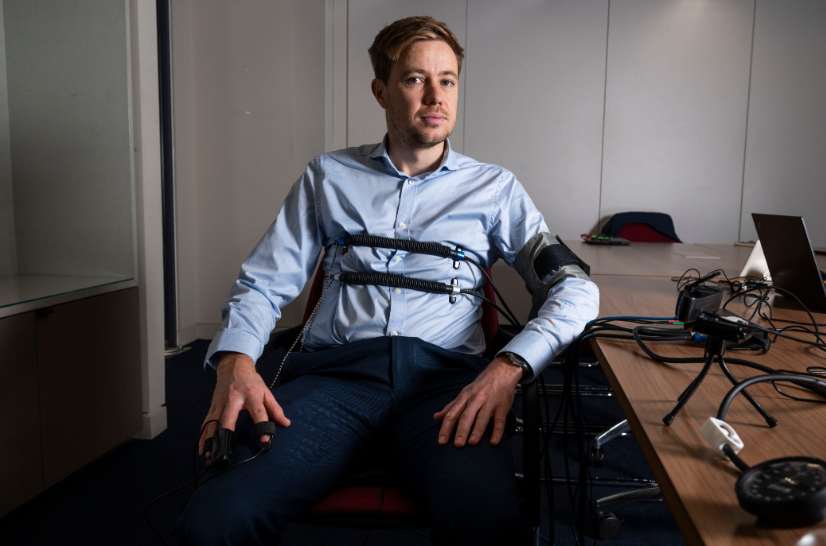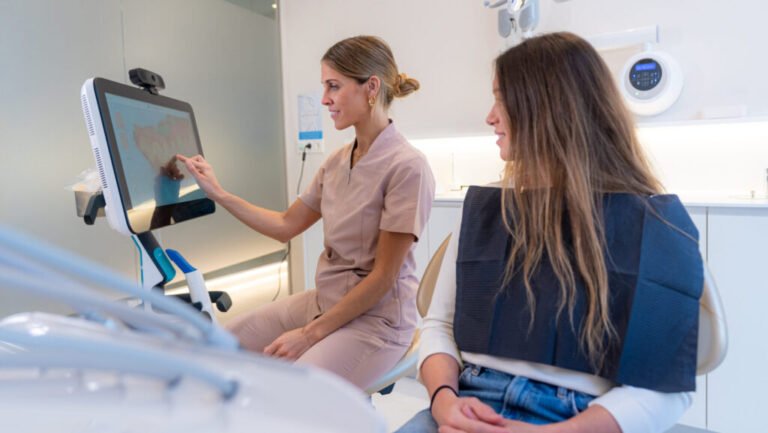Polygraph Tests in New Jersey Explained
Introduction
For decades, lie detector tests have captured the public’s imagination. Whether it’s in movies, television shows, or real-life investigations, the idea that a machine can detect deception is fascinating. In reality, a lie detector test in New Jersey is not science fiction but a tool that has been used in law enforcement, legal disputes, employment checks, and even personal matters. Polygraph tests, as they are formally called, have both supporters and critics. Some see them as valuable tools for uncovering the truth, while others question their accuracy and reliability. To make sense of the debate, it’s important to understand what polygraphs are, how they work, and how they are used in New Jersey today.
What Is a Polygraph Test?
A polygraph test, often called a lie detector test, is a process that measures a person’s physiological responses to questions. The basic principle is that lying produces stress, and stress triggers bodily reactions that are difficult to control. These include increased heart rate, faster breathing, sweating, and changes in blood pressure.
The polygraph machine records these reactions through sensors attached to the subject’s body. The data appears as lines on a chart, which a trained examiner interprets. If the reactions are stronger when certain questions are asked, the examiner may conclude that the subject is being deceptive. While the science behind polygraph tests is debated, they are still widely used in New Jersey for both professional and personal purposes.
How a Lie Detector Test Works in New Jersey
If you schedule a lie detector test in New Jersey, the process usually begins with a pre-test interview. During this stage, the examiner explains the procedure, discusses the questions, and ensures the subject understands what will happen. This step is crucial because it helps establish a baseline of normal physiological responses.
Once the test begins, the subject is connected to the polygraph machine through sensors on their chest, fingers, and arm. The examiner then asks a combination of neutral questions (such as “Is your name John?”), control questions designed to trigger stress, and relevant questions related to the matter at hand. The machine records the subject’s reactions throughout.
After the questioning, the examiner reviews the results and prepares a written report. This report may suggest whether the person appeared truthful, deceptive, or inconclusive. In New Jersey, results may be used to guide investigations, settle personal disputes, or support legal strategies, although their admissibility in court is limited.
Historical Use of Polygraph Tests in New Jersey
Polygraph testing first became popular in the United States in the early 20th century. By the mid-1900s, law enforcement agencies across the country—including those in New Jersey—began using lie detector tests to help during interrogations. Police departments saw them as useful tools to eliminate suspects or confirm details during investigations.
Over time, the use of polygraph tests spread beyond law enforcement. Employers in sensitive industries used them as part of their hiring processes, and private citizens began requesting lie detector tests to settle disputes. In New Jersey today, polygraph exams are available from both law enforcement and private examiners, though strict rules govern their use in employment and court settings.
When Are Lie Detector Tests Used in New Jersey?
A lie detector test in New Jersey can serve different purposes depending on the situation. Some of the most common uses include:
- Employment Screening: Certain employers, particularly in law enforcement, government, and security, may require polygraph testing as part of their hiring process.
- Personal Disputes: Individuals sometimes seek polygraph exams to resolve conflicts related to trust, such as allegations of theft or infidelity.
Even though polygraphs are not perfect, many people in New Jersey find them useful in situations where truthfulness is uncertain and emotions run high.
Accuracy and Reliability of Polygraph Tests
The accuracy of polygraph tests is one of the most debated topics. Supporters claim that when conducted by trained professionals, polygraphs can be up to 80–90% accurate. Critics argue that external factors—such as nervousness, medical conditions, or deliberate attempts to manipulate the test—can affect results.
In New Jersey, polygraph results are generally not accepted as evidence in court. Judges and lawmakers view them as supportive tools rather than definitive proof. However, in investigations and private disputes, they still hold value because they can provide direction or reassurance.
The Cost of a Lie Detector Test in New Jersey
The price of a lie detector test in New Jersey varies depending on the examiner, the type of case, and the complexity of the questions. On average, a single session costs between $300 and $700. While this may seem expensive, many people consider it worthwhile when dealing with serious personal or legal issues.
Some examiners also provide additional services, such as detailed written reports or court testimony, which may increase the cost. Before scheduling a test, it is a good idea to ask about fees upfront and understand exactly what is included.
See also: Exploring the Role of Technology in Enhancing Mental Health Care
Finding a Qualified Examiner
Choosing the right examiner is one of the most important steps in the polygraph process. In New Jersey, many professional examiners are certified by organizations such as the American Polygraph Association. Certification ensures that the examiner has proper training, follows ethical guidelines, and understands the science behind polygraph testing.
When selecting an examiner, ask about their experience, credentials, and approach to testing. A professional examiner should be transparent about the process and willing to explain the limitations of polygraph testing.
The Future of Lie Detection Technology
While polygraphs remain the most recognized form of lie detection today, technology continues to advance. Researchers are exploring new methods, such as brain imaging, voice analysis, and artificial intelligence, which may provide more reliable results in the future. For now, however, polygraph tests remain a widely available and frequently used option in New Jersey.
- Location in New Jersey
- Fort Lee – 1 Bridge Plaza North, N Central Rd, 6th Floor, Fort Lee, NJ 07024
- Piscataway – 30 Knightsbridge Rd, #525, Piscataway, NJ 08854
- Basking Ridge – 233 Mt Airy Rd, 1st Floor, Basking Ridge, NJ 07920
- Parsippany – 1719 NJ-10, #300, Parsippany, NJ 07054
- Princeton – 103 Carnegie Center Dr, Princeton, NJ 08540
- Hampton – 53 Frontage Rd, 1st Floor, Hampton, NJ 08827
- Bedminster – 1 Crossroads Dr, Bedminster, NJ 07921
- Iselin – 33 Wood Ave, Iselin, NJ 08830
- Short Hills – 51 John F. Kennedy Parkway, Short Hills, First Floor West, Millburn, NJ 07078
- Edison – 110 Fieldcrest Ave 3rd Floor, Edison, NJ 08837
- Mahwah – 1000 Wyckoff Ave 3rd Floor, Mahwah, NJ 07430
- Hoboken – 221 River St 9th Floor, Hoboken, NJ 07030
- Jersey City – 2500 Plaza 5, Jersey City, NJ 07311
- Cherry Hill – 923 Haddonfield Rd, Cherry Hill, NJ 08002
- Tinton Falls – 3600 Route 66, Shore Crossings, Tinton Falls, NJ 07753
- Mt. Laurel – 309 Fellowship Rd, 2nd Floor, Mt. Laurel, NJ 08054
- Lawrence Township – 2564 US-1, Lawrence Township, NJ 08648
- Freehold – 4400 Route 9 S, Suite 1000, Freehold, NJ 07728
Conclusion
A lie detector test can be a helpful tool in many situations, from personal disputes to criminal investigations. However, it is important to understand both its strengths and limitations. Polygraph tests measure stress responses, not lies directly, and their results are not always accepted in court.






